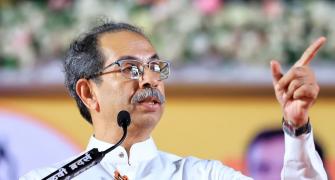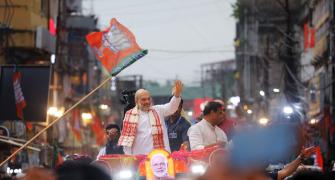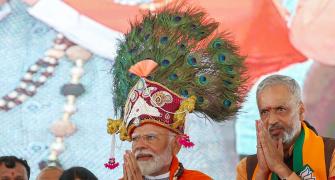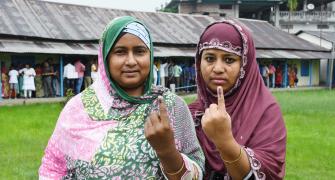The United States has said that it expects India to vote on Iran based on its self-interests at the International atomic Energy Agency meeting on February two and that it has 'no desire' to interfere in this process.
"I think the record is clear that the United States considers India to be a great country and great countries make their own decisions based on their interests. We have the highest respect for that process. We would never want to interfere in it," Under Secretary of State for Political Affairs Nicholas Burns told media persons at a reception on the occasion of the Republic Day celebrations at the Indian Ambassador Ronen Sen's residence.
Complete Coverage: Indo-US Nuclear Tango
"Ambassador Mulford and I both believe that he and I have had a chance to discuss with the Indian government directly and we will keep those discussions private...We respect India, we respect its sovereignty, we respect its right to make its own decision," Burns said.
"But we have a right in international politics to articulate our own views, and Ambassador and I have both done that. I think it has been blown out of proportions. We have a mature, respectful relationship with the Indian government," he said.
Complete Coverage: PM In The US
Defending his top envoy in New Delhi as an outstanding Ambassador, Burns said the United States had the highest respect for the sovereignty of India. "We know that India, like all countries, makes decisions based on its own national interests. And we expect nothing less on this issue of Iran," the senior administration official remarked.
"We had a very respectful dialogue on Iran. I think India knows the United States and I think we know India's position. I think a healthy relationship will work very well together, in a respectful way with each other," he said.
Burns, when asked if Iran was part of the civilian nuclear energy arrangement with India, argued that while India was expected to vote in its self-interests, it was imperative that a broader message was sent to Teheran as well.
Vote against Tehran or N-deal will die: US
"We would expect India to vote in its self-interests on February two just as the United States will vote. We hope that all democratic countries will send Iran a message. And the message should be that Iran is an outlaw state in terms of its nuclear ambitions and democratic countries like India, Russia, the United States and Britain hope that we all are together on this... I think that is the best way to explain this situation," Burns remarked.
When asked why all the attention was on India when it was only one vote at the IAEA, Burns stressed the importance of all democracies to send the message to Iran. "It is not just India. It is all democratic countries like Japan, Singapore, Australia and the United States should be joining together to send a message to the Iranian government," he said, refusing to speculate on what would happen to the civilian nuclear deal if India did not side with the United States at the IAEA meeting.







